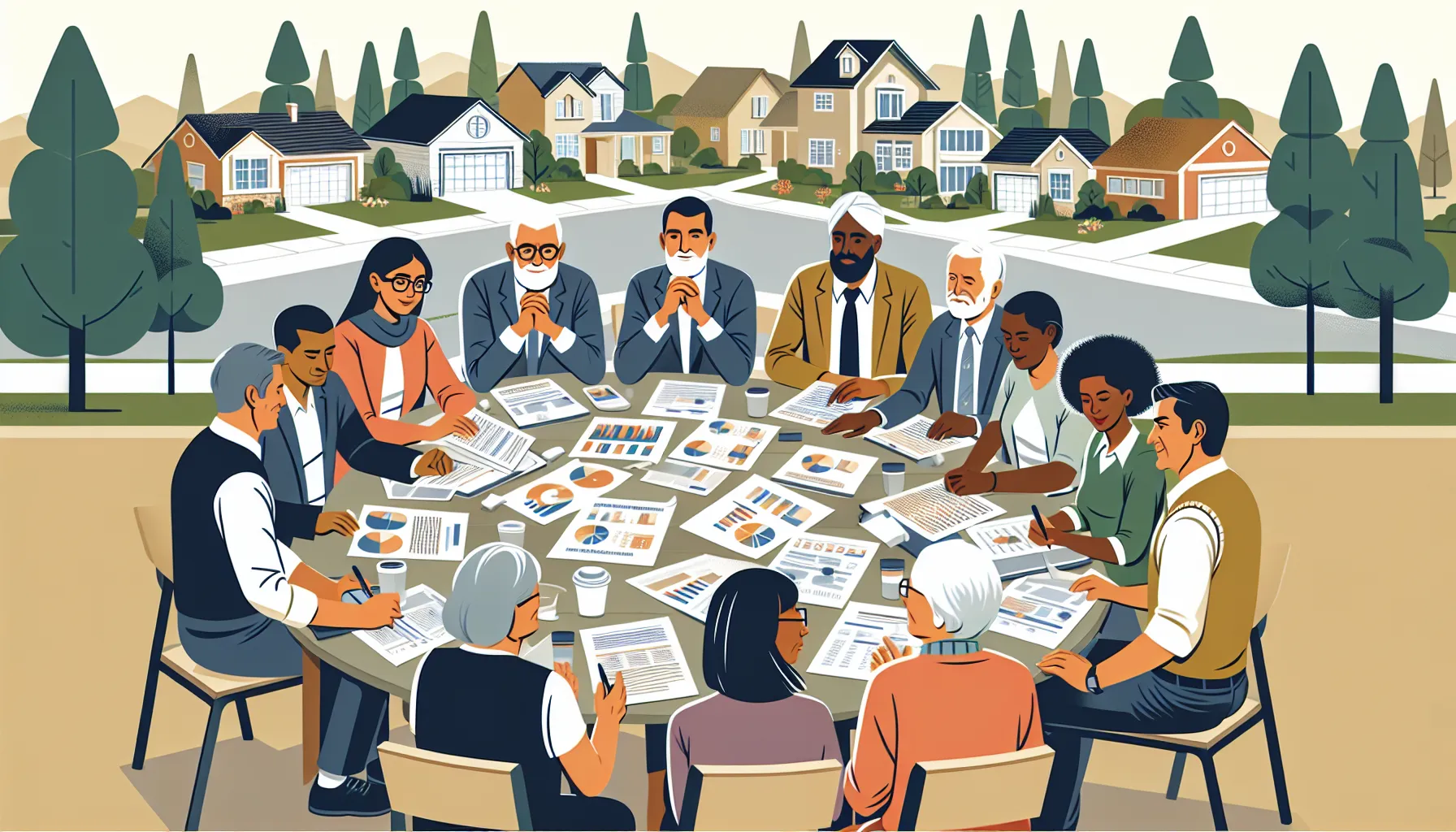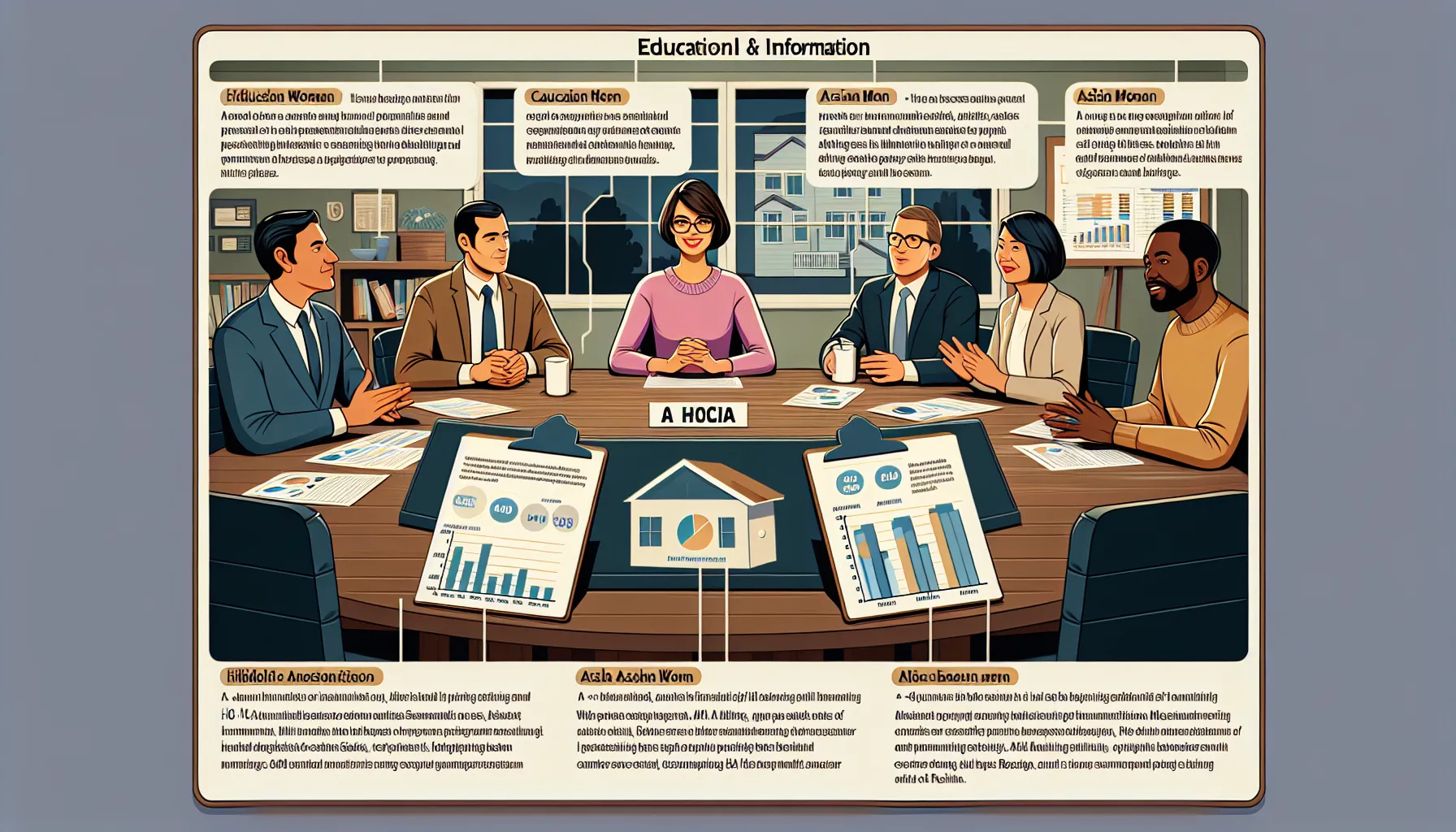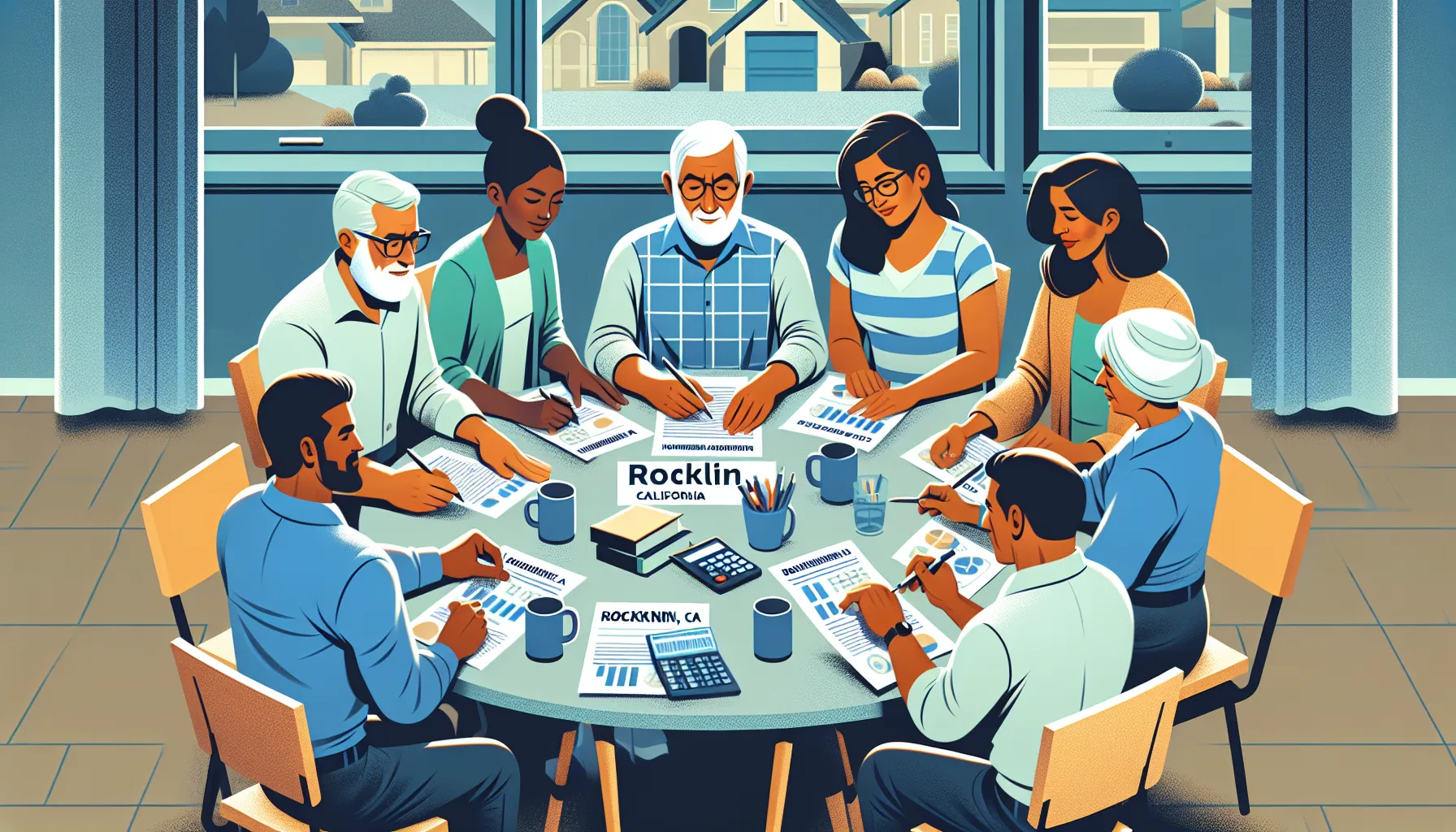Key Takeaways
- Effective HOA budget planning in Rocklin requires a careful balance between managing operating costs, saving for reserves, and preparing for unexpected expenses.
- Accurate tracking of fixed costs (like management fees, leasing fees, and inspections) and variable expenses ensures a transparent and realistic budget.
- Involving homeowners in the budgeting process fosters trust, aligns priorities, and increases community satisfaction.
- Regular assessment and renegotiation of service contracts help keep expenditures competitive and control rising costs.
- Setting aside reserve funds and maintaining clear communication about financial decisions strengthens the community’s long-term financial health.
Planning an HOA budget in Rocklin can feel overwhelming. There are so many moving parts—from setting aside funds for maintenance to making sure every dollar is accounted for. I know how important it is to strike the right balance between keeping costs reasonable and maintaining a community everyone feels proud of.
Are you wondering how to prioritize expenses or prepare for unexpected projects? You’re not alone. Many board members and homeowners want clarity on fees, inspections, and improvement costs. How do you make decisions that support both the community’s needs and long-term financial health? Let’s explore what goes into effective HOA budget planning and how you can approach it with confidence.
Understanding HOA Budget Planning in Rocklin
HOA budget planning in Rocklin brings together careful forecasting and real-world experience. Every board faces questions about which expenses matter most, how to predict costs like insurance claims or maintenance, and what to do if something urgent comes up. Have you ever wondered how other Rocklin communities handle these choices?
I find that the backbone of sound planning includes tracking fixed costs, estimating project needs, and keeping room for unexpected repairs. Common items, such as monthly management fees that might average 6.5% or 7.5% of rental income, require close attention since they impact the overall budget. Leasing fees, usually around $199 per new lease, and annual property inspections, often costing $75 each time, add up quickly over the year. What priorities feel most important in your community—routine maintenance, improvements, or something else?
Many boards ask about improvement projects, which can claim about 7.5% of project costs. Marketing expenses, like a $150 boost for social or digital ads, and closeout or insurance oversight fees, typically at $100 per property or claim, appear less frequently yet leave a noticeable mark on the budget. Have you factored in these one-time or occasional expenses when mapping out next year’s plan?
Setting priorities means taking time to review the association’s goals and listening to feedback from homeowners. Balancing what’s essential today against what the community wants for the future takes thoughtful conversations. I’ve seen strong results by setting aside reserves, considering both ongoing costs and less frequent but costly improvements. What strategies help your board plan with confidence for both short-term needs and long-term growth?
Key Elements of an Effective HOA Budget

Crafting an effective HOA budget brings peace of mind and clarity to any community. I’ve seen that thoughtful planning makes it possible to maintain property values, strengthen resident trust, and keep surprises to a minimum. How do you approach budget season, and where have you seen the biggest challenges?
Operating Expenses
Operating expenses directly impact the daily controls and upkeep of your association. These costs include common area maintenance, lawn care, pool upkeep, utilities, cleaning, and routine repairs. I make it a habit to include management fees, accounting services, property inspections, and administrative costs like mailings or legal notices in this section as well. Consistent monitoring helps avoid overspending, but have you noticed certain expenses changing from year to year? Adjust projections based on clear past records and current vendor contracts. Regular reviews create transparency and allow priorities to match real community needs.
Reserve Funds
Reserve funds act as a financial safety net for major repairs and replacements. I always recommend determining reserve contributions by analyzing the lifespan of assets—roofs, pavement, shared structures, or large equipment. For example, annual reports from reserve specialists can guide calculations to keep the fund healthy and fair for everyone. Too little funding may leave everyone unprepared; too much ties up resources that could benefit members now. Does your board routinely update reserve studies, and do you share these findings with owners? When people see that savings plans exist for big-ticket projects, trust grows.
Unexpected Costs
Unexpected costs can disrupt the best-laid plans. I always account for emergencies like storm damage, broken water lines, or urgent legal issues. Budget line items such as insurance oversight fees, one-time project costs, or sudden code compliance expenses fall in this category. Even the most seasoned board member knows some surprises are unavoidable. Allocating a percentage for unpredictable expenses—often 5-10% of total expenditures—adds crucial flexibility. Are there instances when past surprises exposed budget gaps in your experience? Having this safety margin calms nerves and lets everyone focus on solutions, not stress.
Steps for Successful HOA Budget Planning in Rocklin

Developing an effective HOA budget in Rocklin keeps the community stable and services consistent. I find that organized steps make the planning process more predictable and help everyone feel included and informed.
Assessing Community Needs
Starting with an honest look at the community’s needs builds a solid foundation. I recommend walking the property and talking with residents to spot recurring concerns. Which amenities see the most use? Are there repairs that keep popping up on meeting agendas? By listing high-traffic areas and frequently requested improvements, I can identify priorities that matter most to homeowners.
Gathering Accurate Financial Data
Collecting reliable financial figures supports clear planning. I gather bank statements, review past maintenance and vendor invoices, and check ongoing service contracts for accuracy. Have utility bills or landscaping costs increased over the past year? These changes affect future budgets. Reviewing all sources—such as reserve studies, insurance premiums, and routine management fees—gives me numbers I can trust as I project for the next year.
Involving Homeowners in the Process
Bringing homeowners into budget conversations promotes trust and mutual understanding. I like to invite residents to meetings and use surveys to ask what improvements they want to see. Which services could benefit from more funding? Where are people comfortable reducing expenses? I listen to their feedback and provide summaries of budget drafts for comments. Open questions help residents feel their voices matter: What would you like to see added or changed for next year? Their input leads to a budget that reflects shared goals.
Common Challenges in HOA Budget Planning

HOA board members in Rocklin face several obstacles when preparing a community budget. Are you wondering how your HOA can keep up with demands and still balance the books? Let’s look at two main hurdles that make this process more challenging.
Managing Limited Resources
Managing limited resources consistently tests my decision-making skills. Each year, available HOA funds often fall short of wish lists from homeowners and board members. Fixed costs like management fees, which range from 6.5% to 7.5% of monthly rents, leasing fees at $199, and set-up or close-out fees at $100 per property, quickly add up. Maintenance, including semi-annual inspections at $75 and regular upkeep, draws down budgets even faster.
Prioritizing becomes essential. Board members must weigh the importance of requested community improvements against recurring expenses. How can I decide what comes first—landscape upgrades or updated safety features—when funds limit choices? Making these decisions can feel challenging, especially if community members have different ideas. Even small projects, such as advertising at $150 or handling insurance claims at $100 each, can impact planning if multiple requests hit at once.
Addressing Homeowner Concerns
Addressing homeowner concerns calls for open dialog and empathy. Homeowners want transparency from their HOA. Unclear charges or sudden assessment increases often cause frustration. For example, new projects or repairs, like home improvement oversight charged at 7.5% of total project cost, catch some residents off guard if not communicated well.
Listening to homeowner feedback helps me, as a board member, find out what matters most. Are neighbors worried about rising fees? Do they feel heard during budget meetings? Creating opportunities for input, such as surveys or town hall discussions, makes homeowners feel involved. This helps in creating a budgeting process that reflects the community’s actual needs. Do you see your concerns reflected in your association’s budget? Having your voice count can make a difference in community trust and satisfaction.
Tips for Improving Your HOA Budget Planning

Start planning your HOA budget by noting all fixed and variable expenses. Fixed expenses include monthly management fees (6.5%–7.5% of rents), leasing fees ($199), and recurring services. Variable costs often cover repairs, improvement projects (typically 7.5% for home improvements), and marketing (such as $150 for online ads). How confident do you feel about identifying each line item?
Review prior financial reports and find patterns in spending. I look at line items like maintenance costs ($75 for semi-annual inspections), insurance claim management ($100 per claim), and appraiser access assistance ($125 per visit). Analyzing these details allows me to forecast needs and spot where expenses fluctuate.
Gather input from homeowners by inviting feedback about what matters most. Which services or improvements do residents prioritize? Engaging others creates budget transparency and helps avoid misunderstandings. I ask owners to share concerns and highlight budget areas needing extra focus.
Build reserves for emergencies by setting aside a percentage from the HOA budget. Unplanned events—like major repairs or insurance claims—can occur suddenly. What percentage of your annual budget do you feel comfortable saving for unforeseen costs? Using actual figures helps me prepare for both immediate and future needs.
Separate operating and reserve funds with clear documentation. Segregating regular operating costs from reserve savings safeguards resources earmarked for major repairs. I always double-check that every amount aligns with specific community projects or vital services.
Communicate decisions clearly with all stakeholders. I notify residents of upcoming fee changes, scheduled improvements, and reasons for budget adjustments. This open communication encourages trust and smooths transitions during the budget cycle.
Regularly assess service contracts and renegotiate when prices shift. Market rates for management, repairs, and marketing can change. How often do you re-evaluate vendor agreements to ensure competitive pricing and quality service?
Stay flexible by revisiting your budget quarterly or after major projects. Circumstances change quickly, and flexibility helps meet evolving needs. In my experience, incremental adjustments prevent surprises and support community stability.
Which approach feels most helpful for your HOA budget planning in Rocklin? Share your thoughts and questions to keep these strategies practical and relevant.
Conclusion
HOA budget planning in Rocklin takes more than just crunching numbers. I’ve learned that a proactive approach—staying organized, involving residents, and keeping communication open—makes all the difference. When everyone understands the process and priorities, it’s easier to build trust and keep the community thriving.
By focusing on both immediate needs and long-term goals, I can help my HOA navigate financial challenges with confidence. Careful planning and a commitment to transparency ensure we’re prepared for whatever comes our way.
Frequently Asked Questions
What is an HOA budget, and why is it important?
An HOA budget is a financial plan that outlines how the association will collect and spend funds over a year. It’s crucial because it ensures there are enough resources to maintain the community, cover routine and emergency expenses, and plan for future improvements.
How should an HOA prioritize expenses when creating a budget?
HOAs should prioritize essential fixed costs like maintenance, utilities, and management fees first. After covering these, boards should assess community needs, gather homeowner input, and plan for both routine and improvement projects, while also setting aside reserves for unexpected expenses.
What are reserve funds and why does an HOA need them?
Reserve funds are savings set aside by an HOA for major repairs or unexpected costs, such as roof replacements or urgent maintenance. Having reserves helps the community handle big expenses without sudden fee increases or special assessments, promoting long-term financial stability.
How can HOAs handle unexpected expenses or emergency repairs?
HOAs can prepare by allocating a percentage of their budget specifically for emergencies and building up reserve funds. Regularly reviewing and updating these funds ensures flexibility and readiness when urgent repairs or unforeseen costs arise.
How does homeowner involvement benefit the HOA budget planning process?
Involving homeowners helps identify community priorities, builds trust, and ensures the budget reflects shared goals. Open communication and feedback lead to more informed decisions, greater transparency, and increased satisfaction among residents.
What common challenges do HOA boards face during budget planning?
Boards often struggle with balancing limited resources, covering rising costs, and addressing diverse homeowner concerns. Managing fixed expenses while addressing requests for improvements or new services can be difficult without clear priorities and open feedback from the community.
What tips can improve the HOA budget planning process?
HOAs should track fixed and variable expenses, review past financial reports, gather homeowner input, and prioritize needs. Building emergency reserves, separating operating and reserve funds, communicating decisions clearly, and regularly assessing contracts will lead to more effective and flexible budget planning.
How often should an HOA budget be reviewed and updated?
An HOA budget should be reviewed at least annually, but regular monitoring throughout the year is recommended to track actual expenses and adjust for any unforeseen changes, ensuring financial health and transparency at all times.
